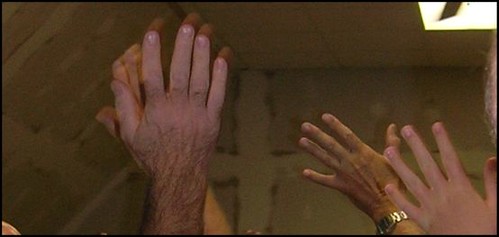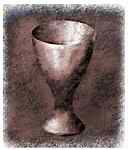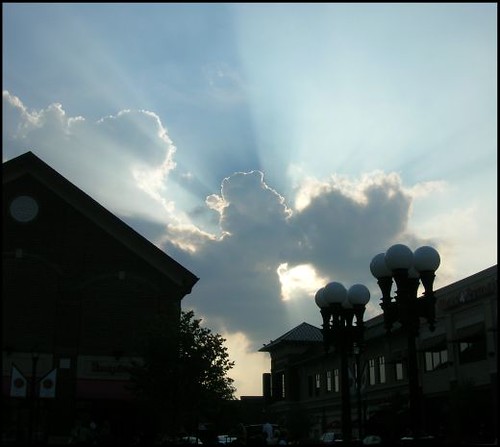Child of God
 Today is our younger son’s birthday. At 4:44 this afternoon, J will turn 10. Steve and I were talking about this morning, and we’re just not sure how that is possible. We’re only 3 years older today than we were on the day he was born. Funny, that.
Today is our younger son’s birthday. At 4:44 this afternoon, J will turn 10. Steve and I were talking about this morning, and we’re just not sure how that is possible. We’re only 3 years older today than we were on the day he was born. Funny, that.J is very interested in “where did I get…?” For instance, “Whose nose do I have? Where did I get my ability to catch a ball?” He likes to play that game. I am TERRIBLE at that game. To me, he just looks like J. Actually, even though our boys don’t look like each other, I think they both look like Steve. G has my eyes, and that’s about it.
The lectionary reading that I read this morning is James 1:17-27. There’s a nice image in that passage of looking in a mirror. What do we see when we look in God’s mirror?
- When we look in His mirror, I think that we see that we are made in God’s image. He crafted us as a reflection of Himself. What does that mean? Does it mean we look like him? I don’t know, but I think it does mean that we are created to BE like Him. What does God do? He loves, and he has crafted us for the same purpose, and He has told us what that purpose is – “Love the Lord your God with all your heart and with all your soul and with all your mind…Love your neighbor as yourself.” It’s not only the “greatest commandment,” – it’s why we were created in the first place.
- What else? When you (or I) look in God’s mirror, I think you’ll see God in your own eyes. He’s not just holding the mirror, he’s in us; he’s with us. Therefore, not only are we crafted to love, we are also comforted by the fact that we don’t have to do it alone. God is not only THERE – he’s HERE.
But whoever catches a glimpse of the revealed counsel of God – the free life! – even out of the corner of his eye, and sticks with it, is no distracted scatterbrain, but a man or woman of action. That person will find delight and affirmation in the action. (James 1:25 – The Message)Knowing this – knowing our identity – we can look at the rest of the passage and understand it better, I think. If we look in the mirror and see that we are created by God to love him and each other, then the rest of the passage is just telling us to do that. I like how the Disciplines devotion that I read this morning divided those actions into three parts:
- Watch what we say to each other – Over my desk at work, I have a few pieces of scripture stuck to a tiny strip of bulletin board. One of the them is James 3:5-10. With it (the tongue) we bless the Lord and Father, and with it we curse men, who are made in the likeness of God. From the same mouth come blessing and cursing. My brethren, this ought not be so. (James 3:9-10) We need to remember that what we say to people – what we communicate to people – is one of the ways we love them. It can also be one of the ways that we fail to love them.
- Help those in need – “To look after widows and orphans in their distress.” Isn’t this just pure “love your neighbor as yourself?” I think James is using an obvious example to help us to understand that love is action – helping those in need is loving them. Without the action, without the love, all we are doing is looking at them.
- Keep oneself from being polluted by the world – Isn’t it interesting that this falls right on the heals – same verse – as looking after widows and orphans? This is very obviously NOT a call to be disconnected from the world. We are to be involved. We are to be fulfilling our purpose – loving people. At the same time, we are to make sure that our mirror is kept clean. We are to remember who we are – whose we are. We need to be aware enough of God that we don’t walk away from the mirror and forget what we look like. It think it’s just another way to say, “Love the Lord your God…”
Image: Happy Birthday, baby! (J with matching cotton candy at KI).Anyone who sets himself up as ”religious” by talking a good game is self-deceived. This kind of religion is hot air and only hot air. Real religion, the kind that passes muster before God the Father, is this: Reach out to the homeless and loveless in their plight, and guard against corruption from the godless world. (James 1:26-27; The Message)




























